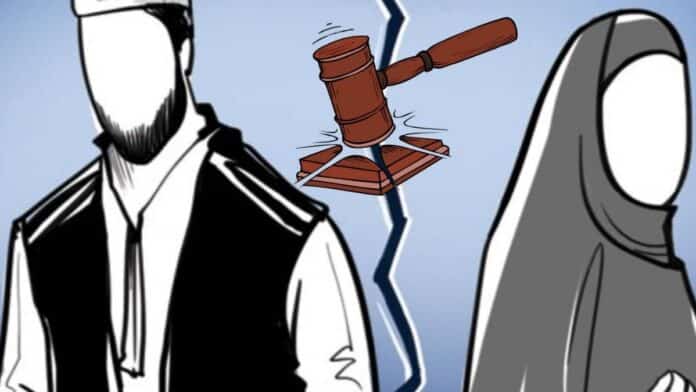The Supreme Court said on Thursday it will examine the larger constitutional issue of challenge to the validity of extrajudicial divorce like ‘Talaq-e-Hasan’ among Muslims.
‘Talaq-e-Hasan’ is a form of divorce by which a man can dissolve the marriage by pronouncing the word ‘talaq’ once every month over a three-month period.
Under Talaq-e-Hasan, a divorce gets formalised after the third utterance of the word ‘talaq’ in the third month if cohabitation has not resumed during this period. However, if cohabitation resumes after the first or second utterance of talaq, the parties are assumed to have reconciled.

A bench of Chief Justice DY Chandrachud and Justices PS Narasimha and JB Pardiwala, which was hearing a batch of eight pleas challenging extrajudicial divorce, including one filed by Ghaziabad resident Benazeer Heena, however, said it will not go into individual matrimonial disputes.
“Since the court is seized of a constitutional challenge, it is clarified that the petitioner (Heena) and the ninth respondent (her husband), who have already approached diverse forums to address their matrimonial issues and thus any issue unrelated to the constitutional issue will not be taken on record,” the bench said.
It asked advocate Kanu Agarwal, appearing for the Centre, to prepare a tabulated chart on the relief being sought in other petitions in the batch and place it before the court on the next date of hearing.
At the outset, senior advocate Shyam Divan, appearing for Heena, said at the last hearing her husband was asked to be present and now an affidavit has been filed which has all the facts related to the matrimonial dispute that needs to be struck off the record.
Advocate MR Shamshad, appearing for the husband, said the courts below have asked her to file income related documents which she has not and is espousing a personal grievance in the form of a PIL.
“Has she been given Talaq or not? If she has been given Talaq, she can very well challenge it. We have to see what the basis for the challenge is,” the court said.
Divan contended the matrimonial aspect is irrelevant to the constitutional issue at hand.
Shamshad said all the petitions in the batch have sought extrajudicial divorce to be held illegal, and a plea with similar prayer had earlier been rejected by the apex court.
Agarwal said the generic prayers in the pleas are regarding constitutional validity of the provisions of the 1937 Shariat Act.
“We will not go into matrimonial disputes here..we are on the challenge to the extrajudicial divorces like Talaq-e-Hasan and we will look into it,” the bench said.
The top court then asked the counsel for Heena’s husband to withdraw the affidavit containing individual facts related to their matrimonial dispute.
Shamshad said the Shariat Act does not regulate any kind of Talaq like section 29 of Hindu Marriage Act.
The bench said, “That is your defence. You argue when the issue will be taken up.”
On October 11 last year, the top court had admitted the pleas seeking ‘Talaq-e-Hasan’ and all other forms of “unilateral extrajudicial divorce” to be declared unconstitutional.
The top court had asked the Centre, National Commission for Women, National Human Rights Commission and others to file their responses.
All the petitions have mostly sought a direction to the Centre to frame the guidelines for gender and religion-neutral and uniform grounds of divorce and procedure for all citizens.
In August 2017, a constitution bench had, by a majority decision, held the practice of instant Triple Talaq (Talaq-e-Biddat) as unconstitutional and violative of Article 14 and 15 of the Constitution.







